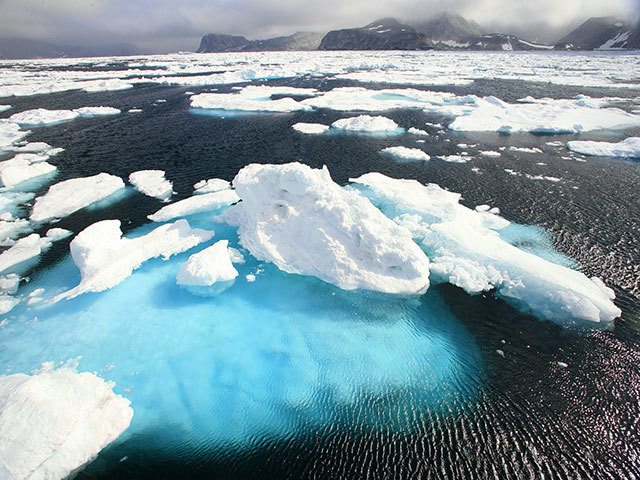
The UK’s support for oil and gas “exploitation” in the Arctic goes against Government climate change pledges, a new report has said.
The stance is incomparable with commitments such as the Paris agreement, according to the Commons Environmental Audit Committee.
A change of policy needs to be considered because Arctic sea ice is at its lowest level since records began, the report notes.
One trillion plastic particles currently frozen in Arctic sea ice risk being released into the ocean due to continued melting, the study said.
And the Arctic Ocean may be ice free during summer by the 2050s unless emissions are reduced, according to the committee.
Ministers should reconsider encouraging UK business to explore oil and gas opportunities in the Arctic and get other nations to take a similar approach, the study states.
The committee insisted that the UK has a responsibility to ensure commercial activities are guided by principles of sustainable development.
The report states: “As the ice melts, the opportunities for shipping increase. The committee is concerned about the risk of oil spills, higher carbon emissions and plastic pollution.”
Committee’s chairwoman Mary Creagh said: “The Arctic is changing rapidly and warming twice as fast as the rest of the planet.
“This brings potentially catastrophic consequences for the global climate as well as commercial opportunities and risks.
“If there is anywhere in the world that the principles of sustainable development should apply, it is the Arctic.
“The Government should start by acknowledging the incompatibility of its support for oil and gas exploitation with its climate change commitments.
“With interest in the Arctic from countries as far away as China and Singapore, the UK must ensure it remains a key player in its protection.
“Failing to act now would be a dereliction of a global duty.”
The report called for increased funding for scientific research into the situation in the Arctic.
The study urged the Government to strengthen UK emissions targets.
And it called on ministers set out a clear timeline for a comprehensive plan to reduce UK plastic pollution.
Recommended for you
